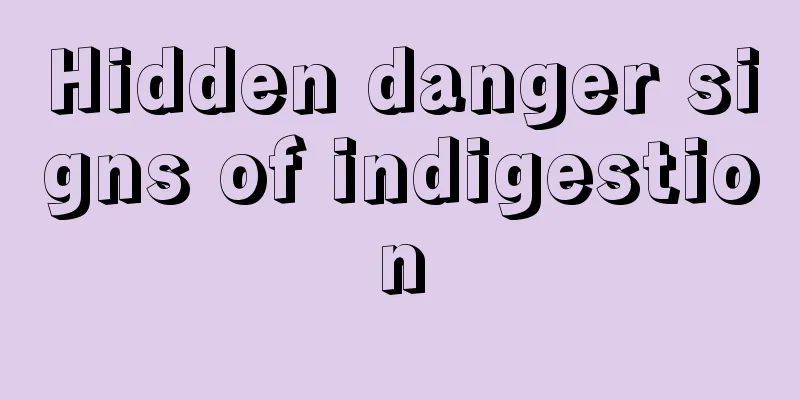What principles should be followed in rational use of drugs

|
Every household has a medicine box filled with various medicines for colds and fevers. Once you catch a cold, you will just pick up some medicine and take it. Many people don’t know the incompatibility of medicines. The medicines they take may react to each other, not only failing to cure the disease but causing certain harm to the body. In severe cases, it may be life-threatening. Therefore, it is very important to use medicine rationally, such as how to use medicine, which medicine to use, and how much medicine to use. What principles should be mastered in rational use of medicine? What is rational use of medicines? 1. The so-called rational use of drugs is to use drugs effectively, safely, economically and appropriately based on the systematic knowledge of contemporary drugs and diseases. Appropriateness refers to appropriate drug, appropriate dose, appropriate time, appropriate route, appropriate patient, appropriate course of treatment, and appropriate treatment goals. The right drug for the right patient: Choose the most targeted drug to treat the disease, and this drug should be suitable for the patient. For example, if your kidney function is poor, you should try to avoid using medications that are harmful to the kidneys. 2. Appropriate dosage : Even if the patient feels that the symptoms are very serious, do not increase the dosage at will, as this may be dangerous. Conversely, if the patient feels that the symptoms have improved, the dosage cannot be reduced at will and the doctor's advice should be sought in a timely manner. ? ? 3. Appropriate time : The intervals between medications should be evenly divided within the 24 hours of the day and coordinated with work and rest schedules. For example: Take the medicine twice a day at 7 am and 7 pm, with a 12-hour interval between the doses. If you take the medicine three times a day, you should try to take it 8 hours apart, at 6 am, 2 pm and 10 pm. If you take it four times a day, try to take the medicine 6 hours apart, at 7 am, 12 noon, 5 pm and 10 pm. If your work and rest schedule conflicts with this, you can adjust it appropriately, but the interval should not be too short. Especially when using anti-infective drugs, you should pay more attention to the interval between medications. 4. Once-daily medication cannot be taken at any time of the day. For example, antihypertensive drugs, diuretics, and hypoglycemic drugs should not be taken at night if taken once a day, because this will cause the drug effect to be too strong at night, leading to danger that is difficult to detect. Some medicines need to be taken when necessary, such as painkillers, which need to be taken when pain occurs. However, they should not be taken whenever pain occurs. Attention should be paid to the interval between dosing, which should generally be more than 4 hours. If the medicine is taken too frequently, not only will there be no good therapeutic effect, it may also increase side effects or cause drug poisoning. Should the medicine be taken before or after meals? It depends on the specific circumstances. 5. Generally speaking, except for bitter stomachic drugs, astringents, antacids, gastrointestinal antispasmodics, intestinal anti-infective drugs, choleretics (most of the above are taken before meals), anthelmintics, saline laxatives (taken on an empty or semi-empty stomach), hypnotics, and laxatives (taken before bedtime), other medicines can be taken after meals, especially drugs that irritate the stomach (such as indomethacin, aspirin, iron supplements, etc.), which must be taken after meals. Taking the medicine after meals will affect the absorption of the medicine, so it is generally absorbed more slowly and the effect will also appear more slowly. Please consult your pharmacist or physician for specific medications. ? ? ? ? ? ? 6. Before bedtime: generally refers to 15-30 minutes before bedtime. Before meals: generally refers to 30-60 minutes before meals. After meal: generally refers to 15-30 minutes after a meal. Appropriate approach: Whether a person is treated with injections or medication is determined by the condition and the nature of the medicine. Generally speaking, critically ill patients are mostly treated with injections, while milder symptoms or certain chronic diseases can be treated with medication or other methods. Some drugs, due to their nature, are only available in oral or injectable forms, and some drugs have different effects when administered via different routes. Injections are not necessarily better than taking medicine. ? 7. Appropriate course of treatment : Take the medicine according to the doctor's instructions. Prolonging the medication time simply to increase the insurance factor of treatment is not only a waste, but also easily leads to adverse reactions such as cumulative poisoning and bacterial resistance. On the contrary, in order to save money, medication is stopped as soon as symptoms are under control, which often fails to completely cure the disease and instead leaves hidden dangers for disease recurrence and wastes more medical resources. Appropriate treatment goals: Due to the limitations of the current level of medical and drug development, some drug treatments can only alleviate symptoms or delay the progression of the disease. It is not possible to cure the disease in all cases. As patients, we should adopt a positive, objective and scientific attitude to face this situation and achieve the medication goals that can be achieved under realistic conditions. |
<<: Will altitude sickness cause nosebleeds?
>>: What are the effects of river clam meat
Recommend
6 major health hazards of lung cancer
Lung cancer is one of the most common malignant t...
Where to apply moxibustion for cold legs
Moxibustion is a popular method of treating disea...
What to eat to prevent esophageal cancer
China is a country with a large diet, but disease...
What is non-keratinizing nasopharyngeal carcinoma and how can it be treated?
Nasopharyngeal carcinoma can be divided into many...
The fetal heart rate is 170, is it a boy or a girl?
The fetal heart rate that people often talk about...
What causes tonsil pain?
In daily life, many people often feel tonsil pain...
What are the methods of tooth restoration?
Tooth repair is necessary for many patients with ...
Does urine routine examination require morning urine?
Many people ask whether routine urine tests requi...
What to do if pimples appear around the corners of mouth
Acne is also called acne, which is a common skin ...
Causes and elimination methods of bruised knees
Sometimes we may find a few bruises on our feet o...
What is the Yaoyu bath recipe?
Nowadays, people are paying more and more attenti...
Shelf life of vinegar
Vinegar is an essential condiment in our daily li...
Can I have sex after thread sculpture?
Thread lifting is actually a common method of fac...
Quick relief for itchy gums
Everyone's dental condition is different. Som...
What are some effective exercises for whole body weight loss
For many girls, losing weight is a very important...









